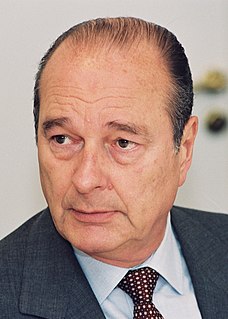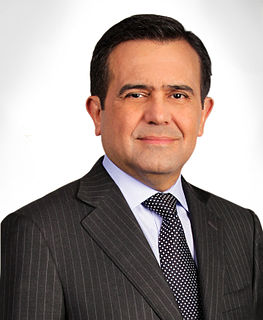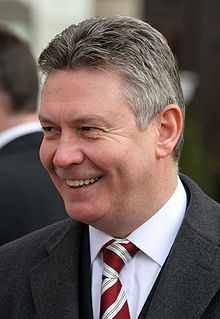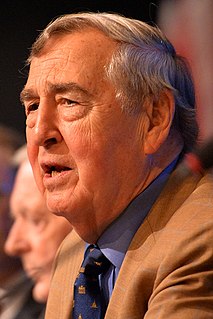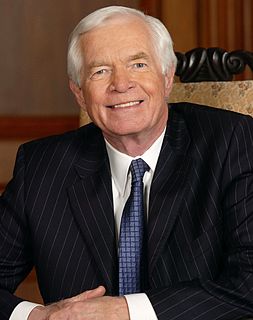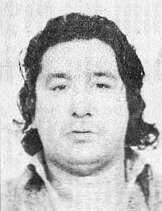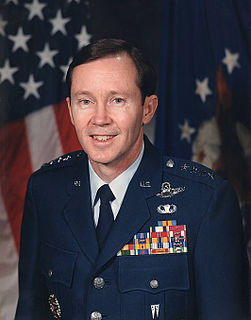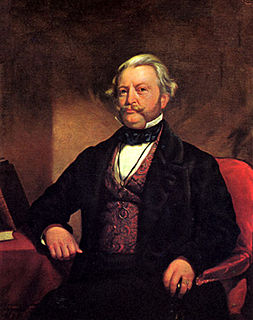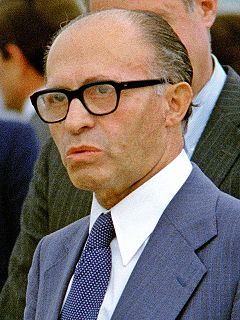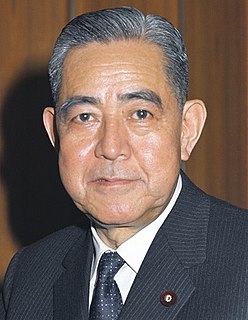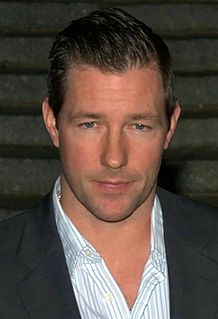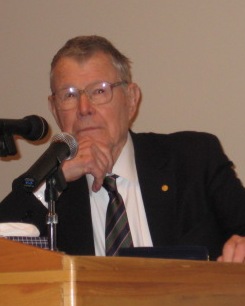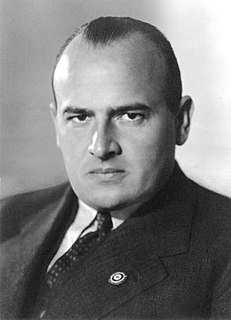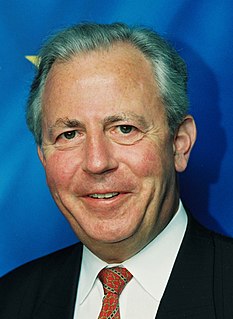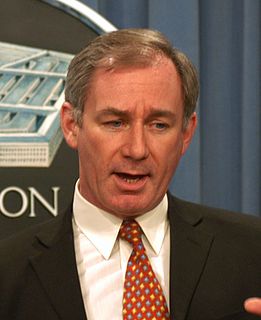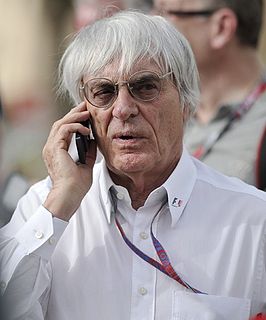Top 504 Proliferation Treaty Quotes & Sayings
Explore popular Proliferation Treaty quotes.
Last updated on December 25, 2024.
The government sent the Indians to Oklahoma. They had a treaty that said, 'You shall have this land as long as grass grows and water flows.' It was not only a good rhyme but looked like a good treaty, and it was till they struck oil. Then the Government took it away from us again. They said the treaty only refers to 'Water and Grass; it don't say anything about oil.'
The basic problem with the Non-Proliferation Treaty is there's no teeth in it, no penalties for countries that don't comply. Worse, as you say, the very naïve structure of the NPT has actually made it helpful for countries who want to acquire nuclear weapons. Iraq, North Korea, Iran, all used the NPT to build up their nuclear programs.
Back in 1956, we signed a treaty and surprisingly it was ratified both by the Supreme Soviet of the Soviet Union and the Japanese Parliament. But then Japan refused to implement it and after that the Soviet Union also, so to say, nullified all the agreements reached within the framework of the treaty.
The international community must do a better job of controlling the risks of nuclear proliferation. Sensitive parts of the nuclear fuel cycle - the production of new fuel, the processing of weapon-usable material, the disposal of spent fuel and radioactive waste - would be less vulnerable to proliferation if brought under multinational control.
It seems to me to be a way to give the Clinton Administration an opportunity to sidestep the issue of whether to announce they're going to withdraw from the ABM treaty, or whether they're going to go ahead and proceed with construction and be hopeful the Russians are not going to accuse them of violating the treaty.
For the United States to recommit itself to the obligation that we undertook in the Nuclear Non-Proliferation Treaty that many other states undertook, which was to work towards disarmament and the eventual elimination of nuclear weapons, is something that manifestly serves our national security interests.
Is America becoming decadent? Do we no longer regard our promises and pledges as sacred? ... We promised to make peace with Germany only in conjunction with the Allies; but we brought forward a separate peace, demanding for ourselves all the advantages of the Treaty of Versailles but rejecting all the responsibilities embodied in the Treaty. It was America's President who induced Europe to form a League of Nations; and then America was the first country that refused to joint it.... If these are not the symptoms of national decadency, what are they?
I would like to clarify that our opposition to the Nuclear Non-Proliferation Treaty is not related to any consideration involving Pakistan. Our position on this important issue is consistent and principled. We are not ready to sign the NPT as it stands today because it is blatantly discriminatory in character.
You recalled the 1956 declaration, and this declaration established the rules that should be followed by both sides and that should be put into the foundation of a peace treaty. If you carefully read the text of this document, you will see that the declaration will take effect after we sign a peace treaty and the two islands [Kunashir and Shikotan] are transferred to Japan. It does not say on what terms they should be transferred and what side will exercise sovereignty over them.
One of the most serious [challenges] is increased military spending and the cost of maintaining and developing nuclear arsenals. Enormous resources are being consumed for these purposes, when they could be spent on the development of peoples, especially those who are poorest. For this reason I firmly hope that, during the Nuclear Non-Proliferation Treaty Review Conference to be held this May in New York, concrete decisions will be made towards progressive disarmament, with a view to freeing our planet from nuclear arms
... looked at from the standpoint of the ultimate result, there was little real difference to the Indian whether the land was taken by treaty or by war. ... No treaty could be satisfactory to the whites, no treaty served the needs of humanity and civilization, unless it gave the land to the Americans as unreservedly as any successful war.
There are tribes, I should say nations, which prior to the AIM movement had only ten or fifteen employees, and now have upwards of 2000. There are educational programs that didn't exist before, there are housing programs, health programs, senior citizen programs, cultural programs and the list goes on. It's all because some people stood up and said sovereignty is our right by treaty and the constitution says treaty law is the supreme law of the land.
It is the foremost responsibility of the United States, having been the predominant nuclear power, to take the lead in scaling this back and making good on its signed and sealed and ratified obligation in Article 6 of the non-proliferation treaty going back to '68 to eliminate this nuclear arsenal. That's a serious international obligation.
In fact, the Outer Space Treaty of 1967 bans militarization. Potential adversaries of the US, and even its allies, are so far behind that these countries are very interested in maintaining the treaty. Europe and the rest of the world want a strong reaffirmation of the Treaty and the US is unilaterally trying to derail it. Termination of the treaty would mean that the US could develop satellite weapons, put offensive weapons in space. It would probably mean using nuclear power in space. All of this leads to some very dangerous scenarios, including destruction of the species.
The Treaty of Lisbon gave the European parliament a stronger role as co-legislator and the European Council its own president. Furthermore, the treaty introduced checks on subsidiarity - the concept that decisions should be taken as close as possible to the citizens - in an effort to cut back on unnecessary rules and regulations.
The real issue of dealing with proliferation of weapons of mass destruction: nuclear, chemical or biological is: What is your tolerance for risk? And my tolerance for risk for WMD proliferation is pretty close to zero. Because otherwise, we and our allies are at the mercy of regimes like Ahmadinejad and the mullahs in Tehran, or Kim Jong Il and the Hitler-in-the-bunker mentality in Pyongyang, or others who don't share our calculus on the value of human life.
Maybe one thing that has happened is that the claims of non-partisanship of the mainstream media have been a little bit exploded. Mostly I'd say what, if anything has caused the change, are just the obvious technological changes - proliferation of easier access to getting your opinions out and the proliferation of media.
However, the treaty exists and it puts us in a different position toward the Soviet Union than the one we have toward other countries. Yes, the treaty exists. Nor does it exist on only one side. Look how w3e're situated geographically and you'll see that India is very important for the Soviet Union.
It is accordance with our determination to refrain from aggression and build up a sentiment and practice among nations more favorable to peace, that we ratified a treaty for the limitation of naval armaments made in 1921, earnestly sought for a further extension of this principle in 1927, and have secured the consent of fourteen important nations to the negotiation of a treaty condemning recourse to war, renouncing it is an instrument of national policy, and pledging each other to seek no solution of their disagreements except by pacific means.
If we act together along these lines, we will create conditions, the conditions for trust that Shinz? Abe speaks about, so as to take another step and conclude a peace treaty on certain terms. However, first, it is essential to cover this part of the way and then agree on the terms for signing a peace treaty. Both are challenging tasks but they are feasible.
If protesting against having a nuclear bomb implanted in my brain is anti-Hindu and anti-national, then I secede. I hereby declare myself an independent, mobile republic. I am a citizen of the earth. I own no territory. I have no flag. My policies are simple. I'm willing to sign any nuclear non-proliferation treaty or nuclear test ban treaty that's going. Immigrants are welcome. You can help me design our flag.
We have been led to believe that we have come a long way toward world nuclear disarmament. But that is not the case. Our government is not doing all that it could. We must urge our leaders to fulfill the obligations of the Nuclear Non-Proliferation Treaty. The United States must assume world leadership to end once and for all the threat of nuclear war. It is our moral responsibility.
The court was unable to rule on all circumstances in which nuclear weapons might be used, and it said in view of the problems, the risks posed by nuclear weapons, and in view of the lack of certainty of the law in all circumstances, the best course is fulfilling the obligation of good faith negotiations of nuclear disarmament contained in the nuclear non-proliferation treaty.
There could be some compromise, but I think we have to stick to the provisions of the treaty, and the provisions of the treaty are saying that the president is appointed for a mandate of eight years time. I think it would be very damaging for the European Central Bank if there would be a splitting of this mandate.
More than 180 countries around the world have ratified CEDAW, some with reservations. While the United States signed the treaty in 1981, it is one of the few countries that have not yet ratified it. As a global leader for human rights and equality, I believe our country should adopt this resolution and ratify the CEDAW treaty.
Only in an Orwellian [Barack] Obama world full of sprinkly fairy dust broken from atop his unicorn as he's peeking through a really pretty pink kaleidoscope would he ever see victory or safety for America or Israel in this treaty. This treaty will not bring peace. You don't reward terrorism. You kill it!

